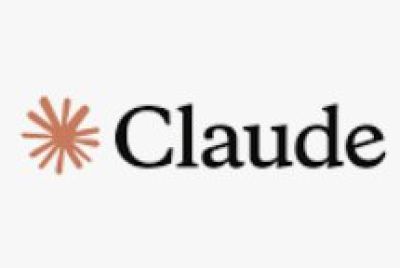World Market Overview
U.S. stocks climbed to fresh two year highs Wednesday, led by financial companies as bank stocks continued to benefit from recent merger activity while the latest round of data pointed to a still recovering economy.
The Dow Jones Industrial Average rose 20 points, or 0.2%, to 11553, after reaching a two year intraday high at 11566.99 earlier in the session.
The measure's financial components led its advance, with J.P. Morgan Chase up 2.5% while Bank of America rose 2.5%.
The Nasdaq Composite edged up less than a point to 2668, off a three year intraday high it reached earlier in the session.
The Standard & Poor's 500 index advanced 0.2% to 1257 and hit a two year intraday high. Financials led the climb as investor sentiment toward the sector continued to improve following recent deal activity.
Tuesday, Toronto-Dominion Bank announced a $6.3 billion purchase of the former auto lending arm of Chrysler. Last week, Bank of Montreal said it was buying a big Midwestern bank in a $4.1 billion share swap.
Regional banks in particular have been boosted by the activity as investors search for the next potential acquisition targets.
Regions Financial jumped 4.8% Wednesday, while First Horizon National rose 4.2%, SunTrust Banks added 2.9% and Zions Bancorp advanced 2.6%.
The strength in the financial sector is giving investors more confidence in the stock market's ascent to levels not seen since 2008.
Gross domestic product rose at a seasonally and inflation adjusted annual rate of 2.6% in July through September, above the previous estimate of 2.5%.
However, Wednesday's number missed economists' expectations for GDP to have risen by a higher 2.9%.
The main revisions were to consumer spending, which rose by less than previously estimated, and to company inventories, which increased by more than previously thought.
Separate data showed demand for used homes increased by 5.6% to a seasonally adjusted annual rate of 4.68 million.
The increase was smaller than the 6.5% rise that economists had predicted, although the price for an existing home edged up for the first time since August.
The mixed round of data was seen as confirming rather than changing investors' assessment of the economy being in a slow-but-steady recovery.
In turn, volumes thinned as investors felt little need to change their positions heading into the holidays.
European Markets
European stocks managed to extend their winning streak to three sessions Wednesday, boosted by car firms and chip maker ARM Holdings.
The Stoxx Europe 600 index rose 0.1% to close at 281.45, and is up 10.9% since the beginning of 2010.
Autos supported the upside move in Europe, as reflected in a 1.3% gain for shares of Renault SA and a 0.5% rise for Volkswagen AG.
At the regional level, the French CAC 40 index ended 0.2% lower at 3,919.71, but shares of LVMH Moet Hennessy Louis Vuitton SA rose 1.8%.
After the close Tuesday, the company said it was raising to 20% its stake in Hermes International SA, shares of which added more than 2% in Paris.
Germany's DAX 30 index fell 0.1% to close at 7,067.92.
Shares of German airline Deutsche Lufthansa AG added 0.2%, recovering some ground lost as harsh wintry weather disrupted flights across Europe and the U.K. in recent days.
London's FTSE 100 index rose 0.5% to close at 5,983.49, supported by a 9.1% rally in ARM Holdings PLC.
ARM's shares jumped on media reports that Microsoft Corp. will announce a new version of its Windows operating system that runs on technology provided by ARM.
British Airways PLC rose 1.9%.
Asian Markets
Asian markets ended mostly higher Wednesday, with resources shares pushing Australia's market to touch a six-week high, but with Japanese shares drifting lower after weaker than expected exports data.
Japan's Nikkei Stock Average slipped 0.2%, South Korea's Kospi edged up 0.1%, China's Shanghai Composite shed 0.9%, and Hong Kong's Hang Seng Index tacked on 0.2%.
In Japan, shares fell on profit taking ahead of a market holiday Thursday, weighed on after data showed exports in November rose 9.1% from a year earlier, missing economists' forecast for a 10.8% rise, but marking the first rise in the pace of export growth in nine months.
Sanyo Electric dropped 5.1% and Panasonic Electric Works lost 4.6% after Panasonic Corp. announced the share swap ratio for turning the pair into wholly owned subsidiaries.
Panasonic shares gave up 1.5%.
Real estate shares outperformed, with Mitsui Fudosan adding 2.3%, Mitsubishi Estate rising 1.7% and Sumitomo Realty & Development gaining 2.3%.
In China, most banks fell after a China Securities Journal report citing unnamed sources said the People's Bank of China may start setting lending quotas for banks based on their capital adequacy ratio, liquidity conditions, provisions for bad loans and loan to deposit ratio, rather than setting an annual loan quota for the country's banking sector.
China Construction Bank's Hong Kong shares shed 1.0% and its Shanghai ones lost 0.4%.
Sinopec was one of the biggest blue-chip gainers in Hong Kong, rising 2.4% after an unexpected fuel price hike in China.
Base Metals
Base metals closed mostly lower on the London Metals Exchange Wednesday, following a day of choppy trading and year-end profit taking.
The LME's three month copper contract closed at $9,345 a metric ton, down 0.2% on the day, after reaching a record $9,392/ton the previous day.
Sparse trading activity meant price fluctuations were exaggerated and the complex wavered between gains and losses throughout the day.
During European trading, copper zigzagged within a range of $9,290/ton to $9,390.25/ton.
Profit taking also put slight downward pressure on prices, as investors sought to tie up commitments before the year end.
Crude oil futures prices rose above $90 a barrel Wednesday, as declining supplies and an improving economy pushed prices to their highest level in more than two years.
Light, sweet crude for February delivery settled up 66 cents at $90.48 a barrel on the New York Mercantile Exchange, after rising as high as $90.80 earlier in the session.
The move higher was sparked by another big drop in U.S. oil inventories in the latest Department of Energy report.
Crude stocks fell by 5.3 million barrels in the week ended Dec. 17, following a 9.9-million-barrel plunge in last week's report, the largest decline in eight years.
Some of those drops stem from refiners reducing inventories to avoid end of year tax charges.
But trends both in the U.S. and elsewhere show that oil demand, which fell in the wake of the global recession, is mounting a sustained recovery even though the economies of major industrialized economies are still on fragile footing.
Comex gold futures settled mildly lower amid quiet trade and end of the year book squaring.
The most actively traded contract, for February delivery, settled down 0.1%, or $1.40, at $1,387.40 per troy ounce on the Comex division of the New York Mercantile Exchange.
The thinly traded December delivery contract settled down $0.1%, or $1.40 at $1,386.80 per troy ounce.
More from IBT Markets:
Subscribe to get this delivered to your inbox daily
Follow us on Twitter.
Follow us on Facebook.





















